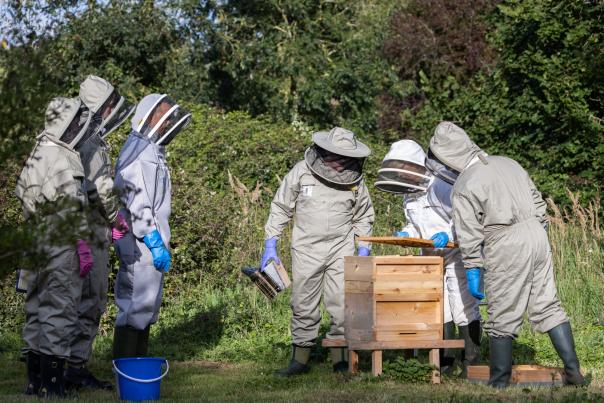
Guests including Station Commander Fred Wigglesworth and Squadron Leader David Bliss joined a special event to celebrate the sustainability project which has been delivered in collaboration with the site and Defence Infrastructure Organisation (DIO).
ESS established its first bee colonies in 2020 at Brompton Barracks in Chatham and has since launched similar initiatives across its estate to support bee populations and promote biodiversity.
Anthony Edwards from the Medway Beekeepers Association, commented of ESS’ original project: “The RSME bee project is so important because there are simply not enough honeybees in the UK to pollinate our fruit and vegetable crops. If every large organisation followed the example of RSME and made land available for similar beekeeping projects, we would be going some way to addressing this problem.”
At RAF Marham, a beehive has been introduced in an area of the site preserved for nature that also includes a bird-watching shelter and pond for use by the whole Defence community.
RAF Marham also has an allocated allotment on site where it grows potatoes, onions, rhubarb and leeks. Produce is donated to team members and was showcased during a recent event where ESS chefs designed a special menu for the site command.
Bob Gray, managing director of ESS Defence, Marine & Aerospace, said: “It’s great to be working with our clients to maximise the potential of the land available on the Defence sites where we operate.
“I’m proud to see the team at RAF Marham following in the footsteps of other ESS sites to support bee populations and wider biodiversity. These are important elements of our sustainability commitments as we work towards climate net zero by 2030.”